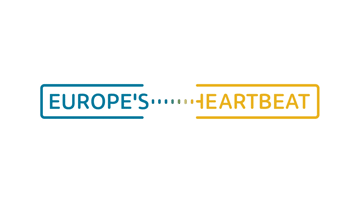Low-interest loans
Loans can be an alternative to grants or venture capital because they entail several advantages:
- apart from some loans referring to specific target groups or sectors (e.g. start-ups, digitalization, energy, electromobility) a tot of them are not
- attached to a specific field,
- application is possible at all times (no deadlines), and
- they can cover higher project costs.
In North Rhine-Westphalia, the NRW.BANK offers a wide range of loan programs, such as:
-
NRW.BANK.Universal Loan: This program is offered for business founders, small and medium-sized companies as well as freelancers. E.g., it is possible to finance resources and equipment by this program. A minimum or maximal amount of the loan does not exist.
-
NRW.BANK.Invest Zukunft: Companies, foundations and members of the liberal professions can get loans in the fields of climate protection (technologies), circular economy, efficiency and savings, mobility, environmental protection measures, digitalization and innovation. Loans of up to EUR 10 million are available at a 2% lower interest rate with a financing share of up to 100%.
-
NRW.BANK Gründung und Wachstum Loan: Business founders can be supported with loans up to EUR 10 million. The financing portion may amount to up to 100 percent of the eligible investment costs or working capital. The acquisition of land and buildings as well as furniture and fixtures and the takeover of existing SMEs are also eligible for funding. The NRW.BANK start-up loan is offered with terms of five, ten or twenty years. The start-up loan includes an optional indemnity bond from the Bürgschaftsbank NRW, for which business founders may apply as part of a standardized process.
-
NRW.MicroCrowd: Startups and young companies (5 years after business start) can get a loan up to EUR 50,000 with a financing share of 80 % and at least 20 % crowdfunding.
-
NRW.Mikrodarlehen: Startups and young companies (5 years after business start) can get a loan up to EUR 50,000.
Public loans, public guarantees
Investors can access public loan programs in Germany. These programs usually offer loans at below current market interest rates in combination with grace periods.
Public loans are provided by so-called development banks: publicly owned and organized banks which exist at the national and state level.
Each financial tool or program offered by such public banks is accessible to foreign investors planning to invest in Germany and subject to the same conditions available to investors from Germany.
Interest-reduced loans
Interest-reduced loans may constitute a subsidy and can usually be combined with other public funding. Please be aware, that the total amount of combined cash incentives available may be reduced when combined with other programs.
Public loan programs on national level
The KfW Group is the nationally operating development bank of the Federal Republic of Germany. The bank is organized into different departments – each specialized according to different target groups and available financing tools.
It makes available a number of different financing tools such as promotional loan programs, mezzanine financing, and equity from public sources. One of the most important loan program in connection with financing an expansion is the Entrepreneur Loan (Unternehmerkredit).
The KfW is contacted via the applicant’s principal bank which normally complements its own financial package by using available KfW financing tools. Investors should have a German bank or a subsidiary of their domestic bank in Germany that is in place to handle KfW loans.
State development bank loan programs
In addition to the KfW Group, each German federal state has its own development bank financing projects within the respective state. They offer own financing programs especially promotional loans.
State development bank loans are generally tailored to meet the requirements of small and medium-sized enterprises (according to the EU Commission‘s SME definition).
Loans are collateralized with usual collateral. Applications are made through the investor‘s principal bank to the respective state development bank.

Loan programs of the European Investment Bank (EIB)
Loan Programs of the European Investment Bank (EIB) cooperation with private banks. The EIB provides loans and further financing tools (guarantees, equity) at at favorable conditions.
To receive support, projects must be viable in predefined areas:
• Climate and ecological sustainability
• Innovation
• Infrastructure
• SMEs and Midcaps
EIB loan programs are open to large enterprises as well as SMEs. As a rule, the EIB lends up to 50 percent of investment project costs.
The main financing tools are intermediated loans. Credit lines to banks and financial institutions help them to provide financial means to SMEs with eligible investment programs or for projects costing less than EUR 25 million.
Public guarantees
Companies can experience difficulties securing financing as, frequently, the required loans can only be collateralized to an insufficient degree.
In these cases – with economically appropriate projects – public guarantees can replace or supplement any shortfall in securities.
How public guarantees work
A public guarantee is a financial instrument that encourages financial institutions, i.e. commercial banks but also public banks, to offer loans to new companies. Guarantee programs are specially designed to help enterprises obtain bank loans by dealing with the collateral constraint.
The guarantee functions as a promise by the guarantor to the lender that, in the event that the borrower defaults on payment, the guarantor will repay the lender a specified proportion of the foregone principal. In other words, guarantees will be given by a guarantor to pay all or part of the loan in the case of borrower payment default.
Different public guarantee programs
Different types of public guarantee programs exist to support different types of investment projects within Germany. The guarantee program depends on the required amount, the investment region, and the size of the company.
The maturity is generally 15 years, or eight years for working capital loans. Commitments vouched for within public guarantees are normally subject to intensive individual examination by external assessors. Guarantee fees are paid annually. The fee paid is a percentage of the actual guaranteed amount at the beginning of the year concerned. This is fixed over the whole duration of the loan.
Guarantee programs are avaiable via a federal state‘s guarantee banks, via the individual state government or via the individual state government together with the federal government.
Guarantees by banks
The public guarantee banks of the federal states in Germany are able to issue guarantees to small and mediumsized companies. Usually, they guarantee for amounts of up to EUR 2 million. They cover up to 80 percent of the loan amount. Application has to be filed to the state development bank of the federal state the respective investment project is located at.
Guarantees by individual state governments
Public guarantees issued by individual state governments are available throughout Germany. Loan amounts, usually larger EUR 10 million, are covered up to 80 percent. Applications have to be handed in before the investment starts. They have to be submitted to the respective state mandatary via the investor‘s bank. A state guarantee committee then delibartes on the application and issues a recommendation. Finally, the State Minister of Finance decides on the allocation of a state guarantee.
Further information
-
Incentive programs


